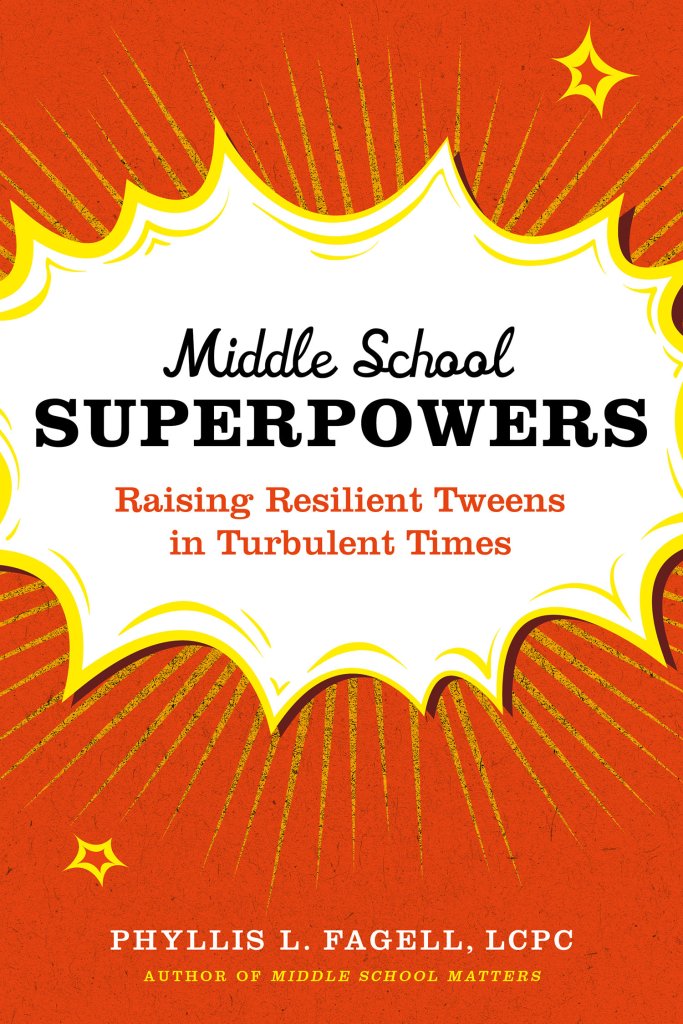Guiding Middle Schoolers to Make Good Choices
Students who can tap into their values and think about the future are more likely to make choices driven by kindness.
Your content has been saved!
Go to My Saved Content.My older son, Ben, texted me from a small bookstore in Massachusetts. “Can you please come back now?” It was a rainy day, and I had popped into the Starbucks next door while my sons were browsing. I grabbed my coffee and walked to the store. When I got there, Ben, then fifteen, shot me a look—the kind that says, “I’m not really sure what’s happening here.” The woman at the counter, who appeared to be in her late sixties, was crying.
“I didn’t expect to have this reaction,” she said when she saw me eyeing her. “A mom and her ten-year-old son just came in looking for a book on bullying. Kids have been taunting the boy, and it brought back horrible memories for me.”
“I’m really sorry you were bullied,” I said.
She sighed. “No, that’s not it. I wasn’t bullied. I was the bully. When I was about eleven, I was cruel to a little girl. She was chubby, and I called her a cow. I called her so many things. The family ended up moving away. I’m old enough to be on Social Security, but it still haunts me.”
Ben was quiet for several minutes after she rang up his book, but his younger brother, Alex, spoke the second we got outside. “I’m telling you both right now,” he said, “I’m never going to call anyone a cow.”

Several years later, I shared this story in an eighth-grade health and wellness class. “It may seem counterintuitive,” I told them, “but many years from now, you may look back and wish you had been less careless with a classmate’s feelings.” It’s hard to teach anticipatory decision-making to tweens. Remember that undeveloped prefrontal cortex I talked about in the introduction? Kids are wired to chase fun and novelty, and it can be difficult for them to imagine that their future self might feel remorseful about cracking jokes at a classmate’s expense or turning away the awkward student who asked to sit at their lunch table. But kids who have Super Sight—the superpower that gives them the ability to forecast how their choices today might play out tomorrow and plan accordingly—tend to be kinder and less susceptible to negative peer influences.
While the majority of this book is about developing the superpowers your kid needs to adjust to change or bounce back from a mistake, challenge, missed opportunity, social blow, or disappointment, Super Sight is different. This superpower is about helping them prevent problems and avoid undesirable outcomes. And this skill applies to more than just social challenges; kids with Super Sight are also more likely to expend energy on important tasks they consider boring, irrelevant, difficult, or frustrating. While it can be easy to fall into the trap of lecturing your middle schooler about your expectations or engage in a war of wills, here are several more productive ways you can teach them to make good choices— and hopefully experience fewer regrets.
Tap into their values and preview potential consequences
Values can provide a useful compass when kids are making social choices. Middle schoolers want to be kind, but they’re egocentric and often can rationalize self-serving or mean behavior. To prove this to a seventh-grade class—and to help them make kinder choices—I presented a scenario. “Imagine that one of your classmates invites you to a sleepover. This is someone who is quirky, awkward, and much less popular than you, but you like them and don’t mind hanging out with them, so you agree to the sleepover. You know it’s a big deal because they keep asking you questions such as, ‘What movie do you want to watch when you come? What snacks do you like?’”
I then complicated matters. “A week before the sleepover,” I told them, “Your best friend invites you to a sleepover birthday party with your five closest friends on the same night. You really don’t want to miss her party, but you also don’t want to disappoint your classmate by backing out. Would you keep the original plans or bail?” I told them it was OK to consider their personal preferences, but I wanted them to factor kindness into the equation. (Because seventh graders are good at finding loopholes, I added a couple of disclaimers. They couldn’t reschedule the first sleepover, and they couldn’t invite their less-popular friend to their best friend’s birthday party.)
I asked the students to break into groups of three and discuss how they would handle the situation. Afterward, I asked whether anyone decided to bail on the original plans. Nearly every hand shot up. One student said she not only wanted to go to her best friend’s sleepover party, but she also felt that was the kinder choice. When I asked her to elaborate, she said, “You should always put the needs of your best friend before the needs of a sort-of friend.” Many heads bobbed in agreement.
Afterward, I handed out a list of about eighty values—including achievement, health, contribution, excitement, creativity, purpose, pleasure, friendship, generosity, kindness, risk, fun, and compassion. I asked them each to identify their ten core values, the ones that best captured how they wanted to conduct themselves and be perceived (see the Resources section at the end of this book for links). When they had created their lists, I asked them to revisit the sleepover scenario. This time, I told them I wanted them to forget their personal preferences and make the choice that was most closely aligned with the ten values they had picked. This time, only one person said they’d bail on the original plans. “Now, imagine it’s six weeks or six months after the sleepover,” I said. “Which decision do you think you’ll be happier with then?” Most predicted that they would feel better about the values-driven decision down the road. As I told my students, I think the exercise eliminates much of the emotional interference—such as FOMO, jealousy, or insecurity—that can cloud their judgment.
Excerpted from Middle School Superpowers: Raising Resilient Tweens in Turbulent Times by Phyllis L. Fagell. Copyright © 2023. Available from Hachette Go, an imprint of Hachette Book Group, Inc.
